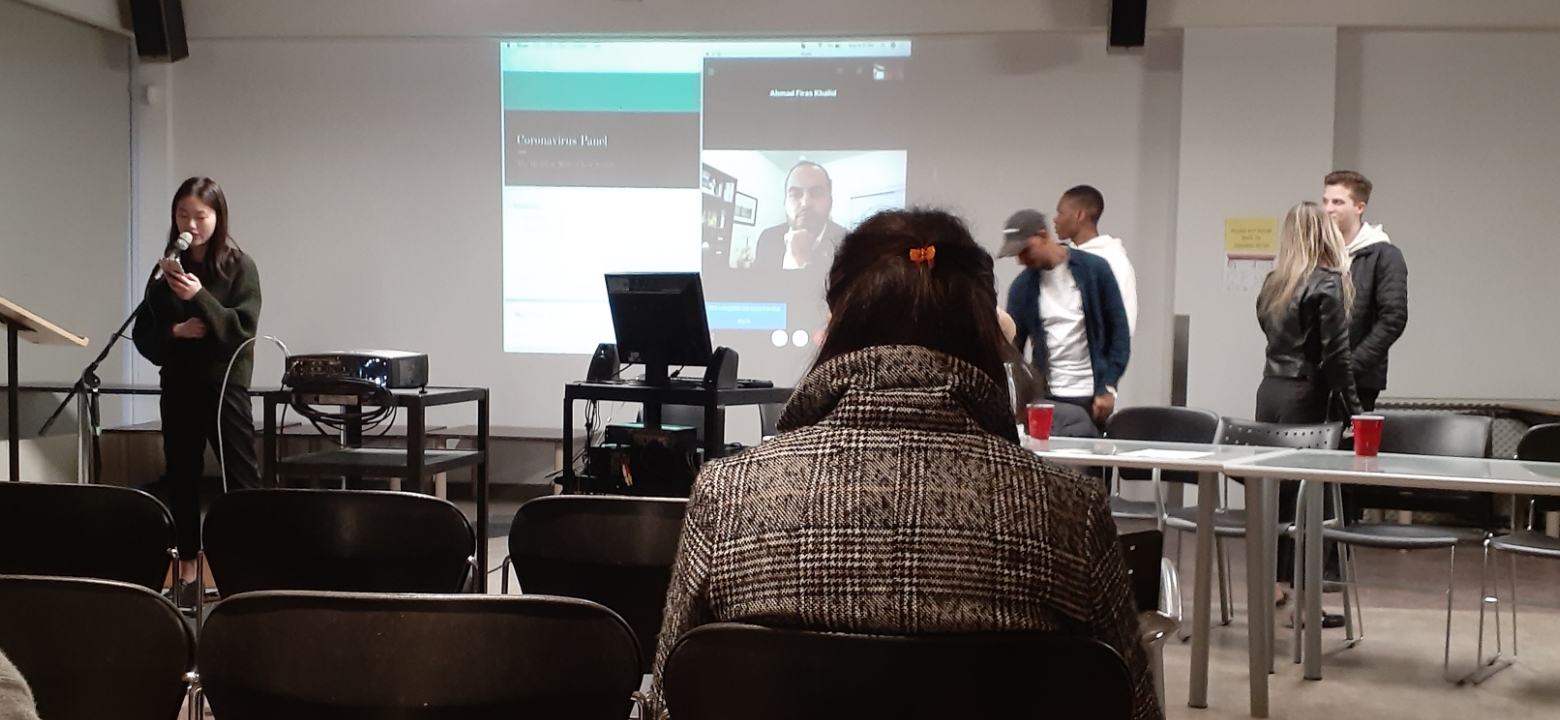Tyler McKay | Assistant News Editor
Featured Image: A land acknowledgement is read aloud before the panel discussion begins. | Courtesy of Tyler McKay/Excalibur
On Wednesday, March 4, a panel was hosted by the Health & Medical Law Society to discuss health law, policies, responses, and the growing concern over the coronavirus.
“In my lifetime, I don’t remember seeing this much of a massive interest by the general public on something this big,” said Ahmad Firas Khalid, a medical doctor and health policy researcher who also teaches and advises at McMaster and York.
“We saw a little bit of it with SARS and with Ebola, but not at the scale as with the coronavirus,” he continued.
Khalid stressed the importance of scientists developing systems to take the data and compile it in a way that is accessible for decision makers given the volume and complexity of the information. The scientific data needs to be more accessible to health care workers and the general public so that they can take proper precautions as well, he argued.
Currently, there is no system in place for rapid summary generation for decision makers to act quickly, according to Khalid.
His talk was followed by Lisa Feldstein, a practicing health lawyer and health law professor at York.
Feldstein talked about how in the aftermath of SARS, reports were generated to assess the reasons for the spread and the response effort, namely the federal document, Learning from SARS: Renewal of Public Health in Canada and the SARS Commission Report which was drawn up in Ontario.
“Having read that report and seeing what’s happening now, it certainly does seem like lessons were learned from the SARS experience,” said Feldstein.
She continued: “Legislation was passed by the federal government and the provincial government to create new agencies” to which people can turn for information such as Public Health Ontario. They can now provide consistent, reliable, and centralized knowledge.
However, during SARS, “there did seem to be not enough information sharing, or a clear spokesperson who would talk to the media,” said Feldstein.
Furthermore, regarding public health law, Feldstein said: “We are talking about law that affects the greater good and individual privacy rights actually don’t prevail: there are things that we might disclose about individuals without their consent because an individuals’ rights don’t trump the public for something like the coronavirus.”
Feldstein also noted that people have a duty to report any cases of perceived “public health significance.”
This is all in the aim of preventing the spread of a disease like the coronavirus.
“I found the talk informative and I liked that the panellists had deep knowledge and practical experience in their fields,” says fourth-year environmental studies student Syed Nizamuddin.
“I learned that the best way to prevent illness is to avoid being exposed to this virus by washing your hands,” he continues.
After the talks, a Q&A period was held where various audience members engaged with the speakers.
“It was amazing to see many students and faculty interested in the field of health law and asking questions to better educate themselves and further educate the public with the knowledge gained through insights from the speakers as well as the discussion period.”


